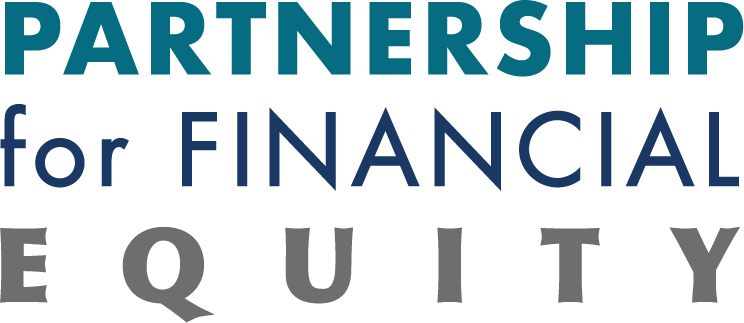Equity Gains Hold, But Mortgage Access Shrinks for Black and Latine Buyers in Massachusetts
September 09, 2025
Boston, MA –For the fourth consecutive year, Black and Latine homebuyers in Massachusetts received mortgage loans at rates nearly proportional to their share of the state’s population. Yet, a sharp overall decline in mortgage lending in 2023 meant that fewer households in these communities were able to purchase homes.
A new report released today by the Partnership for Financial Equity and the Woodstock Institute shows that home purchase mortgages to Black households fell by 23%—from 4,040 in 2022 to 3,115 in 2023—while Latine households saw a 22% decline, from 6,733 to 5,271. Though significant, these drops were slightly less severe than the overall 25% decrease in home purchase mortgage lending across Massachusetts, which was largely driven by rising interest rates and a tightening housing supply. Lending to low- and moderate-income households saw the steepest decline, falling by 36% year over year.
The findings are part of Mortgage Lending Matters, one of the most comprehensive annual analyses of home lending in the Commonwealth, with a particular focus on access for low- to moderate-income borrowers and communities of color. Mortgage Lending Matters is supplemented by a comprehensive Fact Book containing detailed lending data, organized by municipalities and counties.
Despite persistent barriers, Massachusetts has been at the forefront of developing innovative pathways to equitable homeownership. Programs like the Massachusetts Housing Partnership’s ONE Mortgage, MAHA’s first-generation matched savings initiatives, MassHousing’s down payment assistance, and the FHLB’s Lift Up Homeownership initiative have all helped open doors for first-time and historically marginalized homebuyers.
“These programs have proven effective—and now is the time to scale them,” said Thomas Callahan, Executive Director of the Partnership for Financial Equity. “We’re calling for increased public investment, expanded participation from lenders, and a greater share of state housing subsidies to be directed toward affordable homeownership opportunities.”
The report also emphasizes the need to align housing policy with ongoing zoning and land use reforms, including the MBTA Communities Act and statewide legalization of Accessory Dwelling Units (ADUs). Together, these efforts can create more diverse, affordable housing options in communities across the state.
“While we’ve made progress in aligning mortgage lending with the racial demographics of Massachusetts, equal access to homeownership remains out of reach for too many,” Callahan added. “Structural barriers in the lending system persist—particularly for Black and Latine households—and rising interest rates and limited housing supply are making fair, affordable home financing even harder to secure.”
Key Findings
Purchase and Refinance Access Remain Unequal
•Black and Latine borrowers were significantly less likely to be approved for purchase and refinance loans compared to White and Asian borrowers, even when controlling for borrower qualifications.
•Among borrowers meeting the report’s definition as well-qualified (Loan to Value of less than 80% and Debt to Income ratio of less than 43%), Latine and White applicants had higher origination rates than Asian and Black applicants.
•Black borrowers were the most likely to be denied—even when well-qualified.
Overreliance on High-Cost FHA Loans
•Black and Latine borrowers were much more likely to receive FHA-backed mortgages, which often carry higher long-term costs.
High Loan-to-Value and Debt-to-Income Ratios
•Black and Latine borrowers continued to receive a disproportionate share of high-LTV and high-DTI loans.
•More than half of mortgages for Black borrowers in Gateway Cities had LTVs over 90%.
Homebuying Patterns Vary by Race and Region
•Mortgage origination rates among Black, Latine, and White borrowers generally reflect their population shares statewide.
•In Boston, both Black and Latine buyers remain starkly underrepresented, while White and Asian buyers are overrepresented.
•In Everett, Quincy, Malden, Chelsea, Revere, and Middlesex County, Asian borrowers account for a share of mortgages that is 10 to 27 percentage points higher than their population share.
•Similarly, in Brockton, Taunton, Fall River, Attleboro, New Bedford, and Fitchburg, Black borrowers have a mortgage share that exceeds their population share by 12 to 23 percentage points.
•Latine borrowers are also overrepresented in Revere, Lynn, Peabody, Pittsfield, and Barnstable and Nantucket counties, where their share of mortgage activity surpasses their population share by 9 to 18 percentage points.
About the Partnership for Financial Equity
The Partnership for Financial Equity was established in 1990 to bring together community organizations and financial institutions to affect positive change in the availability of credit and financial services across the Commonwealth by encouraging community investment in low- and moderate-income communities and communities of color. Funded through member financial institutions, community development organizations, and others, its Board of Directors consists of an equal number of representatives from leading community organizations and financial institutions.
About the Woodstock Institute
At Woodstock Institute, our mission is to advance economic justice and racial equity within financial systems through research and advocacy at the local, state, and national levels. Woodstock Institute envisions a society where all people experience economic security and prosperity.

